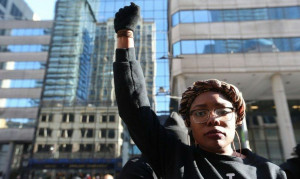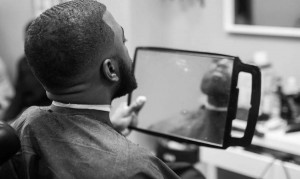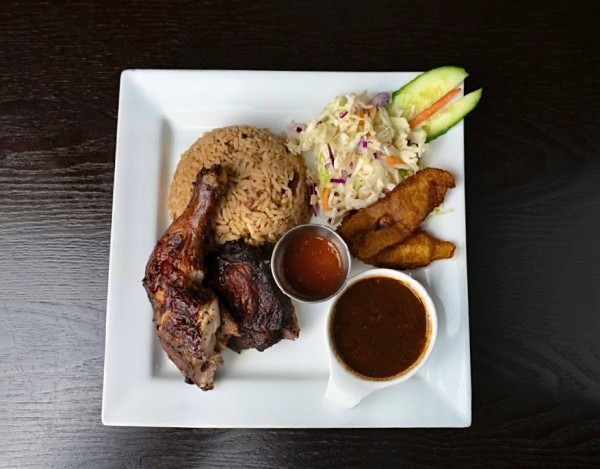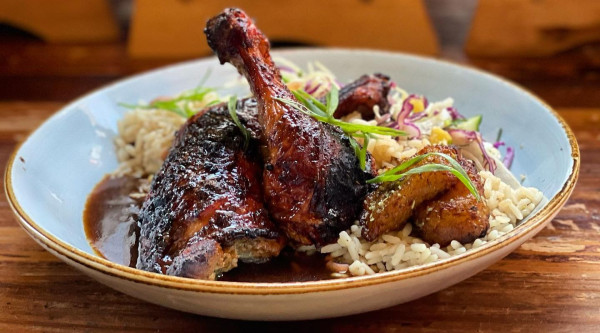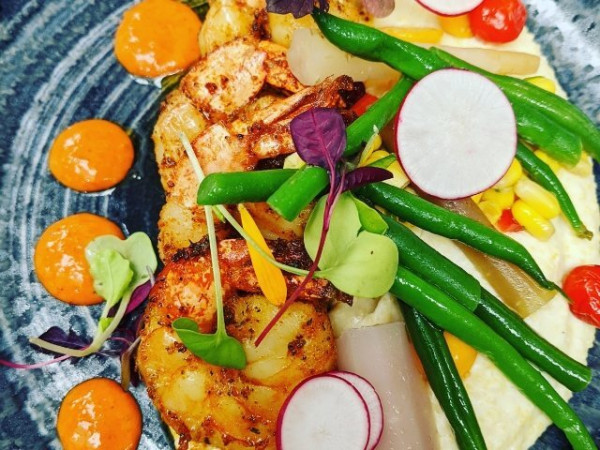After COVID-19 hit, three restaurants in Ottawa (two of which are Black-owned: Baccanalle and Pili Pili) joined forces with four community organizations (Equal Chance, The Canada for Africa Group, Ottawa Homeless, Period Sisters in Sync) to bring hot meals to vulnerable folks such as the elderly and people living with disabilities. For over a month now, the group called Meals For Hope has also been dropping off hot meals and free grocery boxes to women's shelters in Ottawa and Gatineau. Once a week, they make two deliveries to Front-Line workers. They are doing this solely on donations from the public, with a GoFundMe page that has raised almost $10,000. The five people carrying out this mission are all volunteers.
An unemployed woman, thought to be in her 50’s, whom this group had already helped and whose food was delivered by a Black volunteer, decided that she needed to request more food. But she also thought she needed to remind the volunteer from whence they came, writing “I never thought I would see the day that a n*****r would be the one helping me. We need two more meals please.”
I spoke to Eliezer Ake, the volunteer who this was directed at, and he says he actually wasn’t shocked at all.
“This is sadly the kind of thing of thing I expect. This superiority complex is very real and something we go through all the time. What I focus on is to build my identity, know my history so that I won’t be as affected by people’s opinions of what my Blackness means to them. So when I saw it, I laughed, I couldn’t stop laughing. Racism is not my job to fix, it’s their sickness. My job is to make sure I have a strong sense of identity and build a strong community with other Black people. So to be honest, I wasn’t affected by what was written, I was affected by the fact that I know there will be no consequences.”
I also spoke to Gwen Madiba, the head of volunteers at Meals For Hope, she co-ordinates and dispatches the meal deliveries. “We are not surprised by this level of racism but more so by the audacity of this person to request more meals while referring to one of us as the n-word. We all wondered how to respond. I decided to contact Hill Harper (a friend of mine) because he’s one of the most poised and brilliant people I know and I wanted to get his advice on how to respond putting our emotions aside.”
Actor, author and activist Hill Harper drafted a response immediately that the group could use: “We have received your request for additional meals, we regret to inform you that we will not be able to fulfill it. As we have a strict policy against use of aggressive, demeaning, derogatory or racist language to or about any members of our service community. We cannot place any team member in a situation where derision, demeaning or hateful words/and or action could take place. We hope you remain safe and healthy during this difficult time. We pray for you and hope that you never use such a demeaning, hurtful and racist word again about anyone, let alone one of our team members. God bless and take best care.”
Madiba shared the story on her Linkedin page and the message that the group would be declining to continue serving this person. And wouldn’t you know, at least one person popped up in the comments criticizing the response - advising that the racist attack probably “wasn’t personal” and that “punishing people who are ‘hurting’ now isn’t necessarily the best solution.”
Even when we go high, people want us to go higher. When are Black people ever allowed to say NO to racism, to not turn the other cheek? I need white people to understand that using this “they didn’t mean it” excuse, doesn’t make it hurt any less. And Black people should not have to subject themselves to being called the n-word for the sake of charity.
Eliezer Ake says these kinds of “neutrality comments” come from a place of privilege. “Before I became a feminist I used to speak from a place of male privilege. But now I speak to other men, because rape, for example, is a men’s problem, not a woman’s. It is men doing the harm. So why don’t white people talk to each other? If you are a true ally, you will take a stand. If you don’t, I will consider that you agree with the oppressor.”
Over the phone, Ake went on to explain that, “It is also the case that some white people have become so accustomed to the narrative that Blacks have to forgive. This was beaten into us from on the plantation and remains in the cultural consciousness. But I do not forgive, I do not forget. What I wanted to ask this woman in the comments was why she thinks it’s my job to sacrifice myself? Why do I have to die on the cross for white people’s sins?”
While Ake agrees with the group’s stance of not serving the offender, he says he’d have no problem delivering to the woman again because he has experienced much worse. But he does feel that this situation is an opportunity to raise awareness on “something that is taken way too lightly.”
Despite this setback, the group is undeterred. Madiba says, “I will continue to donate my time to this project. This is just one person out of hundreds of really good people who are happily and respectfully receiving this assistance. In the end, it takes all of us to combat and end racism.”
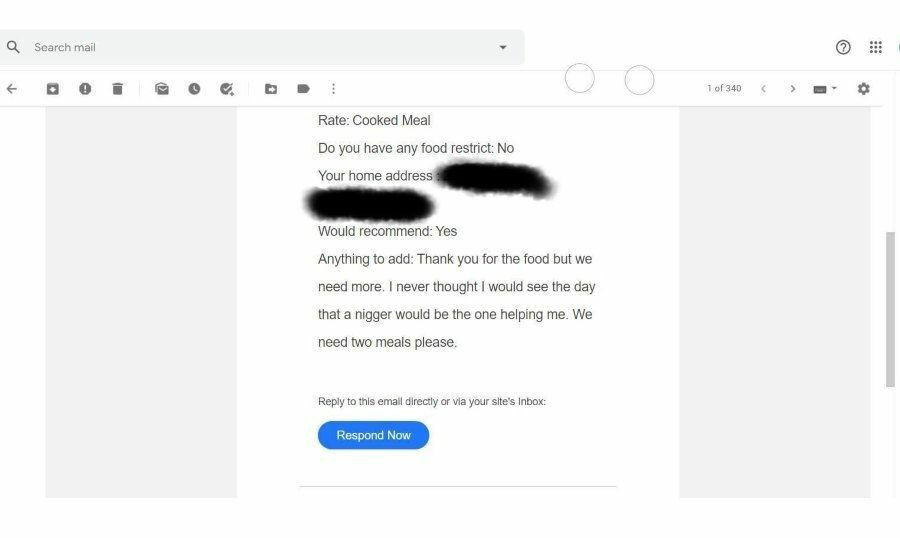
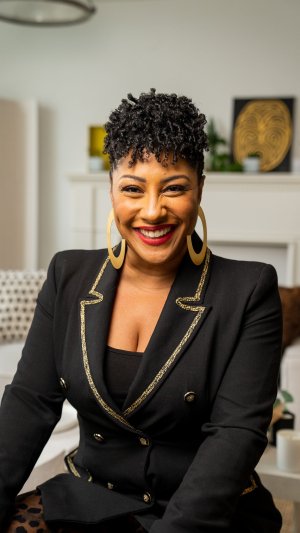 By
By 

